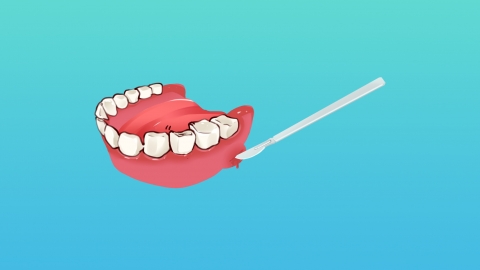Can porcelain-fused-to-metal crowns cause gum recession?
Properly fabricated and well-maintained porcelain-fused-to-metal (PFM) crowns generally do not cause gingival recession. However, if the crown is poorly made, oral hygiene is inadequate, or the materials cause irritation, gingival recession may occur.

If the PFM crown is properly fabricated—with precise marginal fit along the tooth root, natural contour matching adjacent teeth—and the dentist avoids damaging the gum tissue during placement, the gums can remain healthy and typically won't recede, allowing the crown to function normally for many years—provided the patient maintains good oral hygiene after the procedure.
However, if the PFM crown is improperly made—for example, if the margin extends too far or is uneven and irritates the gums, or if the crown's shape causes food impaction—poor long-term cleaning can lead to gingivitis. Persistent inflammation may damage gum tissue and eventually result in gingival recession. Additionally, some patients may be allergic to the metal substructure of the PFM crown, which could also trigger gum inflammation and recession.
In daily care, it is important to clean around the PFM crown and gumline thoroughly every day using a soft-bristled toothbrush and dental floss, and regularly use a water flosser to remove debris from tight spaces. Dental check-ups every six months to one year are recommended to detect and correct any issues with the crown early. Avoid chewing excessively hard foods with the crowned tooth to prevent crown damage or gum irritation.




